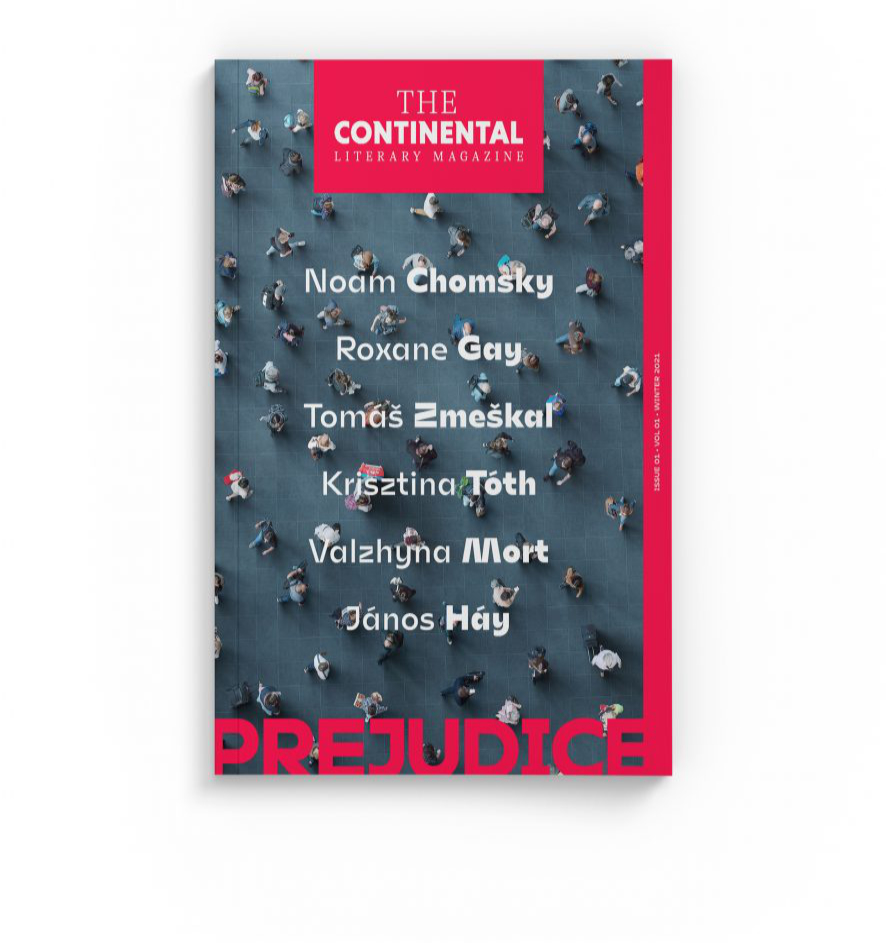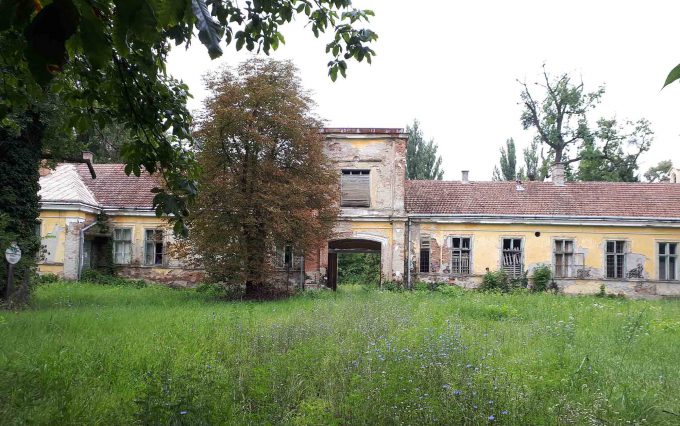
1st February 2022
Fiction
8 minutes read
[1945]
translated by Owen Good

1st February 2022
8 minutes read
In the autumn of 1944, the Russians poured across the border at Battonya, pushing out the Germans as they approached. They swallowed up our village of Gerla before rolling on toward the horrors of Budapest. The residents were terrified to death, but the village barely lost more than during peace time. Still, hardly any of the Jewry remained: two old men who came back the following summer, barely recognizable. The small synagogue was quickly turned into a granary by the newly formed central will. Bulging black rats lumbered about the bottoms of the walls as the two old men took up their old shops again. Dezső Havasi, auto and motor parts. Ruttkay, brewer. Their families and their children were all lost. They spoke only to each other. Quietly, at length, across the tarred wooden back fence. Cigarette, a piccolo of lager, inaudible muttering in the shade. Then lunch.
Nobody could understand how, but the loudmouthed Havasi soon found himself a new wife. A young lady, rightly said to be gorgeous, with neatly tied black hair, started couriering her husband’s three-course lunch from somewhere in the village—the German part of the village—in stackable aluminum boxes. A soup, a main course, and either a sweet, fruit, or cheese for dessert. The husband started setting up at around eleven forty-five. He brought out the table and chair. He meticulously set them up in the shop window. Cloth, dishes, cutlery, napkin. The wife changed the cloth and napkin every day, washed up thoroughly after every meal. She even watched the water drain. When the husband waited for his wife, he sat and read the fresh daily paper. People should see he was going to eat.
Maybe one day his own wife would deport him.
It was almost unfathomable to Dezső Hevesi, but one day the soup was too hot. She had spooned it into the soup dish with the ladle carried from home; it had cooled, but not enough. Hot, hot, hot – wailed the man. Take this away from me, get it out of my sight! Dürrgemüse! The woman looked at him but said nothing. And then she sloshed the soup back into the top container, stacked them together, and went home without a word. He hobbled, he limped quickly after his lunch, he shouted at her straight back, please stop, don’t leave, but to no avail. Then he paused, his leg or who knows what hurt, he stared ahead and waited, in case she looked back. He was utterly alone. She disappeared around the corner. Later she bore him two beautiful girls, but by that time the shop had been seized from Dezső by the communists. When Ruttkay was taken by gut problems, they moved to Israel. Havasi died, the girls stayed in Israel, and a few months later the wife moved home to Jamina. At around noon every day she walks to Havasi’s old shop: there’s a small bar there now, a hole in the wall.
And then, in ’45, more came back. Two bodies one soul, my only true friend in the town, the wonderful Doctor Tardits. The pharmacy staff: Lénárd Poletti, Gyula Palatinus, Ágost Schnautiegel. Police Chief Achs, Szilárd Kánya, the gymnastics teacher, Uncle Tőzsér, Józsi the Landlord, and the general practitioner known as Elemér Tardits. These were the members of the old gang who met each day for lunch. I used to be Poletti. Palatinus became a communist—his party-friendly progress was understandable. Schnautigel was shot by a drunk Kyrgyz. Achs escaped to the nearby town of Békéscsaba, which was to serve him relatively well. Of Kánya we had no notion—he vanished into thin air. Tőzsér ran to the West—we heard he settled in Vienna. So, for a while after the war, Józsi the Landlord carried on running his casino bar. For the last of the travelling salesmen, for the more skillful peasants, for me. And for the unusual character that remained of Doctor Tardits.
The doctor’s classic erudition was long gone. He drank apricot pálinka, like Achs used to. And he was forever telling the same story, over and over. He told it once, he told it again, when he got to the end, I helped him home. Tardits, legally speaking, was never Jewish. And yet now he was, there was nothing left of the old doctor, hardly a thing. A faint mouth, he may well speak, you barely hear. Maybe that’s why I’m writing it for him. In case this way is louder.
When Doctor Tardits came back to Gerla, on Saint Stephen’s Day, in his fresh linen clothes, on his brand-new bicycle, he found their newly built house occupied by strangers. He sat in front of the house. He wept next to his bicycle. In a way, he was proud to be weeping. Maybe it would bring him back to this life. In ‘42 he had grown tired of their grand, but dilapidated and humungous home. He demolished it, sought out a Budapest architect, and erected a new building on a distinguished side street in the village. The Tardits Villa, Gerla. Nobody liked it. But its fame spread. A cozy corridor, a cozy bathroom, a cozy kitchen. But the bedrooms were enormous, the living room bright, the study gargantuan. Glass, metal, gravel, stone. You could see all the way from the mantelpiece to the Világos Hills. 4 Berzsenyi Street—Tardits was even proud of their address. The war had taken his whole family from him. And now this. Even this. He sat in the dust. He wept. He was lonelier than Ruttkay, lonelier than Havasi, lonelier than the foreign, mute, German wife, lonelier than the children in the Israeli kibbutzim. He sat in the sand. He sprinkled it over his head as if it were ash. He stood up slowly. He put his shoes back on. He donned his hat. This is no fairy tale. Just an account. That’s my intention. He set off towards the square. He sought out the Political Department at the Gerla Police Station. For the rest of his life he knew the words in the report by heart.
“On arriving after my deportation, I was shocked to see that at the local council, Andor Hriscsány is still in a leadership position as village notary. In 1944, this individual, in his enforcement of the anti-Jewish laws against my family, went far beyond what was prescribed, and upon its seizure, immediately took ownership of our newly built house. My shock worsened when I learned that officially it was in his name. In this regard, I wish to make the following submissions.”
The ghetto in the town of Békéscsaba consisted of roughly one hundred houses. In the first weeks of June 1944, the Jewry were moved into the Tobacco Exchange: eight 42 x 15-meter single-roomed, two-floor buildings, four thousand people.
The gendarmes and other uniformed men sent them off to Auschwitz-Birkenau on June 27th.
At the international border, detectives and midwives carried out strip searches. The lethal journey lasted days.
Allegedly, the main gate of the camp looked like the famous middle gate of the Wenckheim Mansion in Gerla. Women: BIIc camp, Mexico camp. Doctor Tardits remembered the blackletter inscriptions on the barracks’ beams. Ehrlich währt am längsten. (Honesty lasts longest.) Ein Laus dein Tod. (One louse, you’re dead.) Im Block Mützen ab. (Hats off in the cabin.) Sauberkeit ist Gesundheit. (Cleanliness is health.) He shouted the German sentences and their Hungarian translations. Sometimes the continuation of the report came days later.
“For thirteen years I was the general practitioner in Gerla. Considered by Hungarian law an Aryan Hungarian doctor with a Jewish wife. In the summer of 1944, I served at the front as a medical colonel. My family were deported in May. Upon returning from the front, I voluntarily followed my family in deportation. That’s when Hriscsány added my name to the Jewish register, and consequently, since the property was in my name alone, he inventoried my movables, registered the house as Jewish property, and appropriated it. On these grounds, and in accordance with the current laws and orders, I request that Village Notary Andor Hriscsány be reinvestigated, that the appropriate proceedings be initiated against him, and that I be summoned as witness in the forthcoming hearing.”







